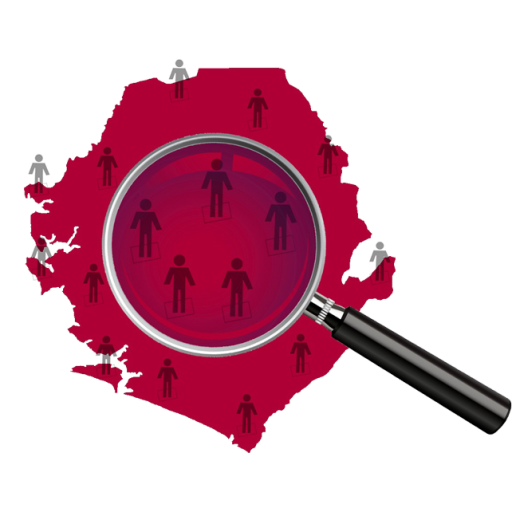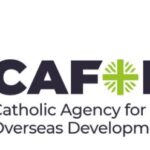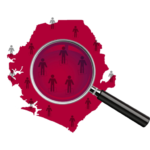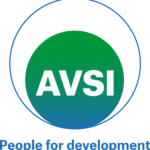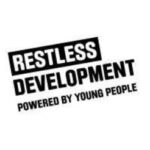Job Overview
-
Date PostedFebruary 16, 2024
-
Location
-
Expiration dateFebruary 22, 2024
-
Experience5 Years
-
QualificationMaster’s Degree
-
OrganizationCAFOD
-
Required LanguagesEnglish
Job Description
TERMS OF REFERENCE TO UNDERTAKE THE PROJECT ‘STRENGTHENING FINANCIAL RESILIENCE AND FOOD SECURITY IN SIERRA LEONE
| Implementing organisation: | Caritas Kenema |
| Project Funded By: | Catholic Agency for Overseas Development (CAFOD) |
| Target Locations: | Kailahun district- Peje Bongre Chiefdom: Pujehun, Jorpowahun, Tikonko, Malema, Fiondu Mbawomahun, Talia, Levuma, Gbahama and Saafa Town and Deima in Kailahun District. |
| Project Goal: | To improve resilient livelihoods in 10 communities in Peje Bongre Chiefdom in Kailahun District through income generation and food security by 2025. |
| Project Outcomes: |
|
| Direct Beneficiaries: | The project is targeting 10 communities within Peje Bongre Chiefdom Kailahun district. The project is intended to reach the following people in the identified chiefdom – 200 women and 50 men as direct beneficiary (1 person per household) and indirectly 1250 beneficiaries (average of 5 persons per household) |
| Project Duration: | 24 Months |
| Baseline Start & End Date: | 27th February – 3rd of April 2024 |
- INTRODUCTION AND BACKGROUND INFORMATION
1.1. Background: The Organizations
The Catholic Agency for Overseas Development (CAFOD) is the official development and humanitarian agency of the Bishops’ Conference of England and Wales and a member of the global Caritas family. CAFOD currently works in partnership with more than 500 national non-governmental organizations in about 40 countries, from those of all faiths, and secular. CAFOD is working in partnership with the Caritas Kenema in Kailahun, Peje Bonjre chiefdom to undertake the Strengthening Financial Resilience and food security in Sierra Leone Project.
Caritas Sierra Leone – Kenema Office was established in 1973 as a Non-Governmental Organization (NGO) to serve as the development wing of the Catholic Church, Diocese of Kenema. It has over 30 years of experience in human and community development in the Eastern Region of Sierra Leone including Kenema, Kono, and Kailahun Districts, more especially in communities where the churches or parishes are established. It is registered with the Government of Sierra Leone at national level through the Ministry of Development and Economic planning (MOPED), Sierra Leone Association of Non-Governmental Organizations (SLANGO) and at district level with the Local Councils and Line Ministries of thematic focus.
Caritas Sierra Leone – Kenema has vast experience in implementing relief and development projects in partnership with the Line Ministries and Local Councils of Sierra Leone Government, Local and International Organizations, Community Based Organizations, Community Stakeholders Community Groups and specific individuals as the case may be. It is grounded on the well structures board, professional management team, trained experienced staff and adaptive parish development organizations.
Over such years, Caritas Sierra Leone – Kenema has implemented projects around livelihood (crops production, small ruminants and poultry restocking, disaster relief, education and Village Savings and Loan Associations) child protection, good governance, illegal migration, health and sanitation, access to justice and Christian moral education.
In Sierra Leone, the Catholic Development Agencies (CDAs), especially Catholic Agency For Overseas Development (CAFOD) and Catholic Relief Services (CRS) as partners have over the years worked with Caritas Sierra Leone – Kenema Office as implementing agency for most of the relief and development projects.
1.2. Background: The Project
This proposed two years livelihood project will be implemented in Peje Bongre Chiefdom, ten (10) communities (Pujehun, Jorpowahun, Tikonko, Malema, Fiondu Mbawomahun, Talia, Levuma, Gbahama, Deima and Saafa Town) with high vulnerability in poverty prevalence in the Kailahun District. Caritas Kenema has implemented similar projects with CAFOD in the recent past in the Kissi Kama and Kissi Teng Chiefdoms in Kailahun District in partnership with Ministry of Agriculture and Food Security (MAFFS) for vulnerable communities. For the previous project, the baseline assessment was conducted by Caritas Sierra Leone in partnership with the Ministry of Social Welfare (MOSW) for women’s empowerment, the Ministry of Agriculture and Forestry on vulnerable communities and the Kailahun District Council for local stakeholders’ participation was analysed. This project proposal is developed upon the lessons learnt from last implementation and the outcome of such participatory approach, data collection and analysis. The design of this project is also in compliance with Sierra Leone Government’s recovery priorities for food security and human capital under its post Ebola and COVID – 19 prevention and control recovery strategy.
Caritas Kenema will implement this project in collaboration with appropriate line ministries (MAFFS, MSW and MOHS) and local councils/Stakeholders. The project is targeting vulnerable individuals (women, young adults and exceptional cases of men headed households) in rural communities. The project is also designed to enhance increase local ownership, involvement in monitoring and accountability systems to ensure sustainability.
This project will contribute and complement the Kailahun District council development plan to ensure the availability of adequate food, access to income and increase resilience by 2025. This project will be implemented to contribute to CAFOD’s Resilient Livelihoods and Women’s Empowerment programme outcomes.
The Goal of the project is “To improve resilient livelihoods in 10 communities in Chiefdom in Kailahun District through income generation and food security by 2025”. To achieve this overall goal, the project is playing critical role in the development of sustainable agriculture practices (agroecology), establish Village Savings and loan scheme including training, provision of business management skill training plus business grant allocation. This project aims to achieve 2 broad outcomes within 24 months::
Outcome 1: Poor and marginalized women and young adults in Peje Bongre chiefdom are contributing to increased livelihood security and financial stability in their households.
Outcome 1 indicators:
- % of Poor and marginalized women and youth in targeted chiefdom with increased knowledge and skills in economic activities,
- % change in the household income of project direct beneficiaries leading to improved livelihood.
Outcome 2: Project participants in Peje Bongre Chiefdom, especially women, are able to access and adopt agroecological techniques /practices for improved yield.
Outcome 2 indicators:
- % of household heads who report increase in number of ruminants reared
- Change in knowledge level of project staff, project participants partners on small ruminant rearing and marketing.
- % change in knowledge of project participants in agro-ecological practices in the chiefdom
- Increased in project participants production yields in using agro-ecological practices in their farming.
The project includes the following expected results or outputs:
- Increased income generation and knowledge on financial services and products of MFIs in communities through Village Savings and Loans Association.
- Improved capacity on business management for VSLA members
- Increased number of strengthened and established VSLA groups and scheme.
- Marginalized women identified for business grant.
- Increased businesses of marginalized women with their new businesses.
- Improved on knowledge and skills on business management.
- Improved capacity of project participant on best agronomic/agronomic practices (Agroecology).
- Improved capacity on small ruminants (Goats) rearing and marketing.
- Increased amount of Small ruminant shelters constructed in project locations.
- Improved capacity of project staff and partners on small ruminant rearing and agroecology practices
- Increased ruminant restocking in Peje Bonjay chiefdom among the project participants
The project is embedded with critical activities that would contributes to achieve the above results and thereby sustaining the overall goal of the Resilience and livelihood project:
- Project launch/inception meeting
- Mapping of existing VSLAs.
- Strengthening of existing VSLAs and establishment of new VSLAs to fill the gap.
- Training of VSLAs on VSLA methodology.
- Procurement and distribution of VSLA materials.
- Training of Extension officers, partners, farmers, and communities on Sustainable agroecological farming techniques, diseases and pests’ control, post-harvest management, organic fertilizers, and composting.
- Distribution of improved seeds, watering cans and organic fertilizers for cultivation.
- Construction of small ruminants (goats) shelters by community chosen skilled workers with support from Caritas Kenema and the construction will be done per community.
- Purchase of drugs and vaccines
- Distribution of small ruminants (goats) for rearing.
- Staff capacity building on agro-ecological climate resilience cultivation practices
- Training on business management skills
- Allocation of VSLA small business grant
- Purchase of drugs and vaccines for small ruminant animals.
- Sensitization and awareness raising of VSLAs on Financial Institutions and Services
- Training of field staff and farmers in ten (10) communities on animal droppings processing to organic fertilizer / composting.
- Distribution of improved seeds and organic fertilizers (compost) for cultivation.
- Training of field staff and farmers in ten (10) communities on small ruminant rearing, veterinary services, and marketing.
- Monitor and support and First VSLA share-out.
- Project Working Areas and Project Beneficiaries
The project will work with vulnerable communities in Kailahun district targeting 10 communities in Peje Bongre chiefdom. In terms of target and reach, the project is directly targeting 200 women and 50 men as direct beneficiary (1 person per household) and indirectly 1250 beneficiaries (average of 5 persons per household)
- Rationale of the Baseline Survey and Scope of Work
The livelihoods and resilient project have defined set of project goal, outcomes, outputs, and inputs stated in the logframe with indicators. It is vital for the project that intended outcomes are achieved in the project duration. Whether intended project results are achieved, is identified through comparison between initial stage of project with final stage. Therefore, it is prudent to find out status against the planned targets and indicators throughout the project period and particularly important at the end of the project.
In this situation, to set up initial benchmark (baseline) at the start of the project is crucial which will be a reference milestone throughout project. Baseline survey will support to have existing status of the project indicators which will be reference landmark to measure project’s progress (outcomes and outputs) throughout the project operating period. Furthermore, the baseline survey will also generate information that will be important for project team to consider and report throughout the project implementing period. Such areas include agriculture (Agroecology) practices, diversified income generating (livelihoods) gaps and opportunities, gender roles in decision making at households and community level and Financial Inclusion programming.
Agro-ecology farming is a farming practice that combines those interactions between agricultural crops and the environment, or rather the application of ecology in agriculture. It is a technique of sustainable farming that focuses on utilizing natural resources comprehensively without letting them be susceptible to damage.
The assessment will pave way for the designing of livelihoods and agroecology livelihoods support and capacity strengthening that the project management and implementation team will develop for their use during the training phase of the project. However, some of the key questions that the assessment will investigate shall include some or all of the following elements of agro ecology and their corresponding indices:
- DIVERSITY: Diversification is key to agroecological transitions to ensure food security and nutrition while conserving, protecting and enhancing natural resources
- SYNERGIES: Building synergies enhances key functions supporting production and multiple ecosystem services
- EFFICIENCY: Producing more using less (external) resources.
- RECYCLING: Recycling means agricultural production with lower economic and environmental costs
- RESILIENCE: An emerging property of agroecology, resilience is key to sustainability
- CULTURE AND FOOD TRADITIONS: Healthy, diversified and culturally appropriate diets for food security and nutrition while maintaining the health of ecosystems
- CO-CREATION AND SHARING OF KNOWLEDGE: Bottom-up approaches and cocreation through participatory processes
- HUMAN AND SOCIAL VALUES: Strong emphasis on dignity, equity, inclusion and justice all contributing to the improved livelihoods dimension of the SDGs
- CIRCULAR AND SOLIDARITY ECONOMY: Reconnects producers and consumers and provides innovative solutions for living within our planetary boundaries while ensuring the social foundation for inclusive and sustainable development
- RESPONSIBLE GOVERNANCE: Responsible and effective governance mechanisms are required at different scales (local, national, global) for sustainable food and agriculture
The Baseline Study will utilize a wide range of appropriate tools and methodologies to measure status of social, economic/financial, food security, agroecology knowledge and practices, assets of targeted communities and households (HHs), existing businesses and management, financial institutions and their relationship with the communities as spelled out in the project document. The baseline findings will be primarily used by Caritas Kenema in comparing baseline and end line data.
The selected Consultant will be expected to carry out the baseline survey covering the following:
- Work with Caritas Kenema and CAFOD teams to develop the research questions and methodology, incorporating relevant elements of the FAO Characterization of Agroecological Transition (CAET) tools.
- Work with Caritas Kenema and CAFOD teams to develop sample framework for the selected communities where the data will be collected.
- Work with Caritas Kenema and CAFOD teams to develop baseline survey questionnaires and other tools, agenda checklist, collect data from field and data analysis.
- Conduct a desk review and analysis of secondary data related to the project overall Objective, Outcomes , and the Outputs.
- Present to Caritas Kenema and CAFOD a report detailing the findings with a table of all the indicators and their current measure values at the baseline.
- Methodology
It is expected that the assessment will incorporate both qualitative and quantitative data collection tools, including Key Informant Interviews (KII), Focus Group Discussions (FGDs), observations and household surveys, amongst others. Consultation should take place with those to be impacted directly and indirectly by the project, relevant selected stakeholders, and randomly selected households. Major findings will be disseminated and discussed before the report is finalized.
Primary data collection will be collected through mobilization of qualified and experienced enumerators. Appropriate sampling methodology will be used to determine sampling frame, sample size and respondents. The survey will be carried out in the 10 communities mentioned above. The baseline information should be collected as such that gathered information should support analysis of all relevant indicators and cross cutting issues as defined in the project logframe and indicated in project documents. Additionally, secondary information shall be collected from project documents, district statistics profiles, universities and government plans for agriculture productivity. FGD and non-structured interview with key informant will provide information about the existing agricultural (/agroecological) practices, existing market system, and government plans and policies.
- Survey Tools and Techniques
The Household Level Questionnaire, Key Informant Interview (KII) checklist and Focus Group Discussion (FGD) checklist will be primarily used in the baseline survey. The consultant will be required to develop household level questionnaire and FGD checklist based on the logframe indicators and then share with CAFOD and Caritas Kenema teams. Developed data collection tools should be clearly linked with project indicators.
- Data/Information Collection, Analysis, and Interpretation
To gather quality data from field on relevant indicators and cross cutting issues of this project, a systematic approach for data collection is essential. The steps mentioned below are recommended for data collection but not limited and based on appropriateness, it will be modified upon discussion between both parties.
- Review project proposals, related project documents and project logframe.
- A desk review should be conducted of secondary data relating to the project’s thematic areas and specific indicators, with a special focus on Kenema. This may include review of Agriculture and Financial Inclusion policies and strategies, farmers organization and MSMEs.
- Study relevant literature/reports for review and reference of published and unpublished reports and documents.
- Household interview with household representatives using questionnaire and record data/information on social, economic, demographic, agriculture/agroecology, market and gender aspects and other cross cutting issues.
- On-farm assessments/transect walks.
- Focus group discussion to gather qualitative data/information aligned to project logframe and triangulate with household questionnaire.
- Evaluation Management
Evaluation will be undertaken by an external Consultant who will be managed by Caritas Kenema office team, namely Programme Manager and Project Officer. However, the independence of the evaluation will be ensured whilst providing guidance and other support during the evaluation process.
- Deliverables
The consultant is liable for the following deliverables during the service period:
-
- Inception Report: This should be accompanied with the general research instrument and should be presented to CAFOD and Caritas Kenema within maximum 4 days upon contract signing. This will include, a statement of work clearly outlining a methodology, sampling, and work plan. This may be further refined after additional meetings with the project team.
- Final research tools and methodological guidance.
- First Draft Report: The consultant will make a draft report and share for review to both CAFOD and Caritas Kenema on the key findings of the baseline survey and recommendations.
- Final Report: The final report should be submitted within five (5) days after reviewed. The Hard copy and soft copy of the report will be submitted to CAFOD and Caritas Kenema.
- All data collected (both raw and aggregated) should be submitted to CAFOD and Caritas Kenema, using a secure transfer method. The data set should be in the appropriate format agreed upon.
- Roles & responsibilities
6.1. Consultant
- Read and understand all project documents.
- Develop evaluation tools and identify sample size and key stakeholders.
- Develop clear and realistic workplan, including timeframe and methodology to be applied.
- Collect field data through participatory processes (involvement of partners and target communities).
- Ensure all respondents are clear on the purpose of the data collection and give informed, written consent.
- Provide datasets with data captured from fieldwork.
- Share findings with CAFOD and Caritas Kenema.
- Manage, transfer and dispose of all personal data securely.
6.2. CAFOD and Caritas Kenema
- Review and approve the work plan, including the timeframe and methodology to be applied, and tools.
- Provide the consultant with background information and reference materials including all relevant project documents.
- Ensure that the health and safety procedures and Caritas Kenema and CAFOD’s Safeguarding, Code of Behaviour, SADI and Antibribery Policies are fully adhered to.
- Provide timely feedback to consultant on products submitted for review.
- Follow up and evaluate progress on execution of the task assigned.
- Review and approve the draft and final product as stipulated in the expected outputs/deliverables.
- Quality assurance of the final product.
- Payment procedures
All Payments shall be made through bank transfer in three instalments.
- 1st instalment of 40% on Signing of Contract.
- 2nd instalment of 40% upon submission of an acceptable first draft report
- 3rd and final instalment of 20% upon submission of acceptable final Report
Note: The stipulated total cost of the assignment should cover all costs incurred during the research period including travel costs and subsistence for the research team. Reports produced both hard and soft copies and all other costs that may arise during the research period.
15% of Withholding tax shall be deducted from the total Professional fees.
- Requirements and Experience of the consultant
The individual must demonstrate the following requirements in their application to be considered of the Job.
- A Minimum of master’s degree or Post Graduate qualification in Social Sciences, Agriculture, Environmental sciences, or a relevant academic discipline.
- Demonstrate at least 5 years’ experience in conducting research related to livelihoods, food security, economic empowerment, and socio-economic development.
- Experience in community entry, mobilization, and the application of social research methodologies.
- Excellent communication skills in both written and oral demonstrated in their ability to write comprehensive reports with in-depth analysis.
- Ability to work in multicultural, multireligious, and rural communities.
- Experience of having conducted a similar job in this project context.
- Strong critical analysis skills and attention to detail
- Flexibility and willingness to travel to the rural regions of Sierra Leone
- Ability to adhere to strict deadlines.
- Experience of using the CAET tools is an advantage.
- APPLICATIONS
Interested applicants should send the following documentation to caritas.sl.kenema@gmail.com by 23rd of February 2024. Include ‘Livelihood and Resilience Project Baseline Assessment’ in the subject line.
The application should include:
- A cover letter expressing interest for the Assignment.
- A technical proposal outlining the understanding of the TOR, Proposed Methodology and Work plan.
- Financial proposal with a comprehensive budget with detailed breakdown of all costs by deliverables and estimated person days to accomplish each task.
- CVs of all members of the consulting team where applicable.
- Proof of similar work done in the past.
